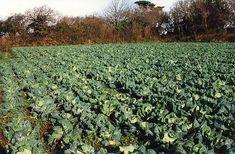
The market for UK grown vegetables such as brassicas and potatoes could tighten as spiralling global wheat prices threaten to push land rents up.
“What we are seeing is wheat-price volatility, rather than just high prices,” said NFU combinable crops chairman Ian Backhouse. “Prices spiked in 2007-08 and then went back down before this rise. What we really need is stability.”
Inclement weather in major production regions such as Russia, Ukraine and Canada are having an impact on global supply. “Landowners will see that if farmers can get a bigger return from growing wheat they will push land rent values up,” said Backhouse. “This could be an opportunity for vegetable growers to switch into cereals, but if they decide to stick with veg, they will still have to pay the higher rent so that could push up their growing costs. Either way, the consumer will have to cover it.”
But he urged caution. “This has to be seen in context. Wheat prices have gone up very quickly in the last five weeks, but in the UK our wheat crop is plenty big enough for our needs and there are still stocks around the world. It is quite possible, therefore, that this price spike could be short-lived.”
It is the marginal growers of brassicas who are likely to be most affected, according to Philip Effingham, chair of the Brassica Growers Association. “The main suppliers will have to go out and pay the cost of increased land rents, but many marginal growers can see that growing wheat might be an attractive option this year. What this does is nibble away at the edges of the sector and causes markets to tighten up.”



